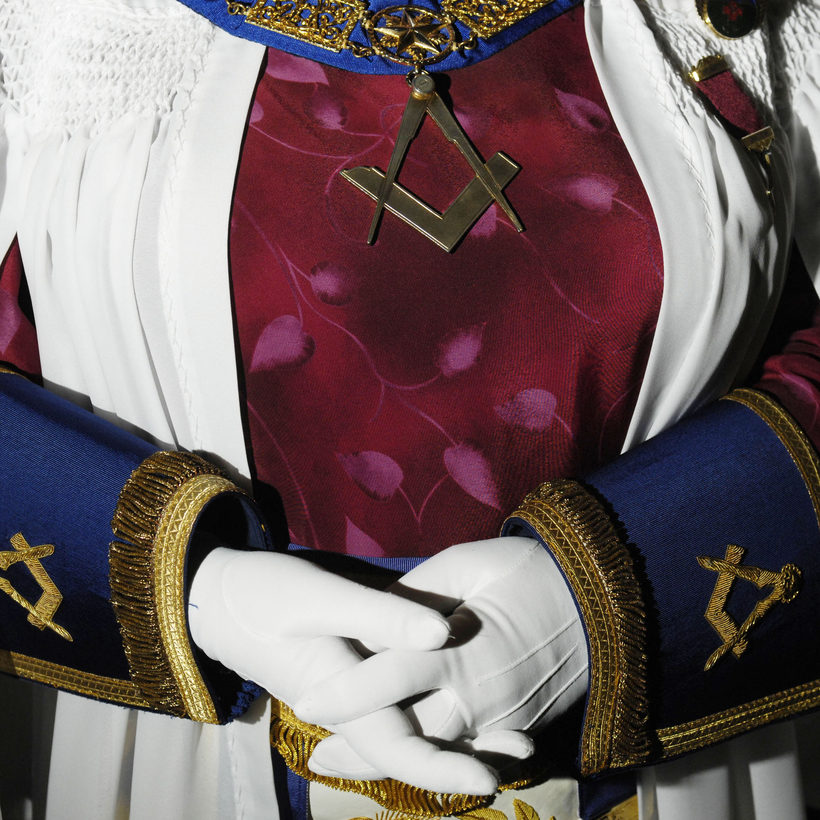Nothing shouts “secret society” quite like a press release announcing the opening of a large gift shop near Covent Garden, London, where anyone can wander in off the street and buy regalia, insignia and ritual guides without having to give a special handshake or say the password. But after decades of inviting conspiracy theorists by keeping their activities private, those who run freemasonry are now very happy to shed light on their 300-year-old brotherhood.
The spacious new shop in what used to be the drawing room at Freemasons’ Hall on Great Queen Street has been created by Lumsden, who also designed the shops at the British Museum, Tate Modern and National Theatre. It reflects the desire of the United Grand Lodge of England to make their headquarters more public-facing.


